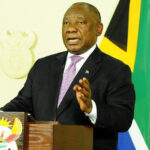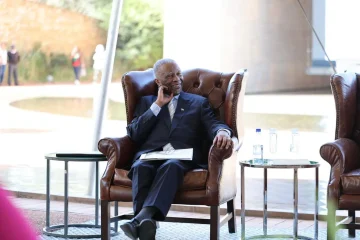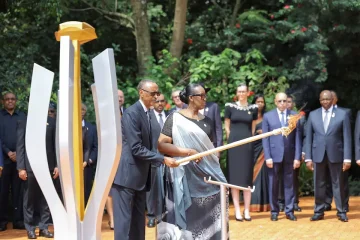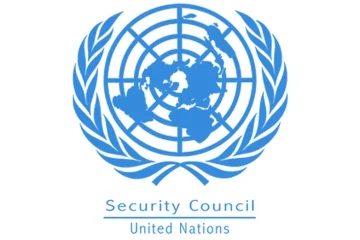MANIFESTATIONS of climate change, such as global temperature increases, have been observed for many decades. The effects of climate change are being felt in South Africa, the rest of the continent and the world. As with most parts of the world, Gauteng can expect to become warmer as global atmospheric and sea surface temperatures rise, with regional variation among the different municipal areas.
In addition to Gauteng being vulnerable to the effects of climate change, Gauteng also represents a significant portion of the national carbon footprint. A revised carbon footprint for Gauteng indicates that the province contributes 33 per cent of the national emissions. A failure to specify and meet carbon emissions reduction targets within the Gauteng region will compromise South Africa’s position in international climate change response negotiations and ability to access climate change-related funding.
However, the threat of climate change also brings opportunities for green growth, green skilling, job creation and just transition. The Gauteng Climate Change Summit, which we are hosting between 21 and 23 November, will bring stakeholders together to find solutions to improve climate resilience and ensure a low carbon trajectory in Gauteng Province.
South Africa is a signatory to the Paris Agreement, a legal instrument guiding the process for universal action on climate change. The Agreement contains a legally binding framework for reporting, transparency and implementation review and can drive greater ambition to tackle climate change. The Paris Agreement calls for countries to submit their respective Nationally Determined Contributions (NDC), embody efforts by each country to reduce national emissions and adapt to the impacts of climate change.
For Gauteng, the strategic financial sense of a switch to renewable energy is undisputed and is also tied to the quality of international investment in local business. The GCR is an economic hub resulting in Gauteng’s contribution to the carbon footprint being quite significant, with consequent opportunities for leapfrogging into a low-carbon economy. These opportunities include access to climate change-related funding and leadership in adopting environmentally sustainable technologies, which will benefit the region in the long term instead of continued reliance on an extraction economy that comes with high environmental legacy costs.
The first Gauteng Climate Change Response Strategy (GCCRS) was developed in 2011 and identified key actions to reduce greenhouse gas emissions into the atmosphere through mitigation strategies. The GCCRS also identified the need to adapt to climate change by assessing the province’s vulnerability and developing sector-specific adaptation strategies.
The Gauteng Provincial Executive Committee approved a Gauteng City Region Over-Arching Climate Change Response Strategy and Action Plan (“the strategy”) in 2020, with ten focus areas being Natural Resources, Agriculture & Agro-Processing, Disaster Risk Reduction and Management, Water Security, Commercial and Institutional Buildings, Human Settlements, Energy Supply, Industry & Mining, Transport and Waste Management.
The thematic programme of COP 28 is to unite diverse stakeholders – all levels of governments, youth, business and investors, civil society, frontline communities, indigenous peoples, and others. Our summit and theme remind us that we are part of a global community aligned with COP 28.
In line with the COP 28 thematic programme, the Gauteng Provincial Government is looking to use the upcoming Gauteng Climate Change Summit to hear from experts, community leaders and policymakers about actions that can be taken to propel us forward in the fight against climate change.
The Summit, themed “Towards decarbonisation of the economy and a climate-resilient society,” will provide an African Perspective on Climate Change and a Global Perspective with deliberations on the Road to COP 28.
The objectives of the Gauteng Climate Change Summit therefore are to outline a vision for the Gauteng City Region on climate change, to profile and showcase our climate change response, deliberate on the opportunities for a Just Transition and the envisaged role of Gauteng in that agenda as well as provide a platform for knowledge exchange with international organisations that are active on climate changes issues.
The focus will be energy systems and industry, cities, urban and rural settlements, infrastructure and transport, land, food and water, societies, health, livelihoods, and economies.
Overall, the Climate Change Summit will cover all segments of stakeholders in various sectors to ensure that no one is left out and inclusive cooperation across all fronts as a step towards sustained climate action in the province. The stakeholders will include the private sector, government and its entities, media, financial institutions, organised labour, academic and research institutions, and civil society.
I am particularly pleased that the department has partnered with the Thabo Mbeki African School of Public and International Affairs to host this event. This partnership emphasises the seriousness with which we regard climate change.
Key objectives of the summit include outlining the vision for the Gauteng City Region on Climate Change, engaging with various sectors, ensuring the alignment of focus areas with the Gauteng City Region Over-Arching Climate Change Response Strategy, and highlighting climate change response efforts by stakeholders across government, the private sector, and civil society.
The need for a coordinated approach involving all spheres of government and private partnerships to implement the Gauteng Air Quality Management Plan cannot be overemphasised.














